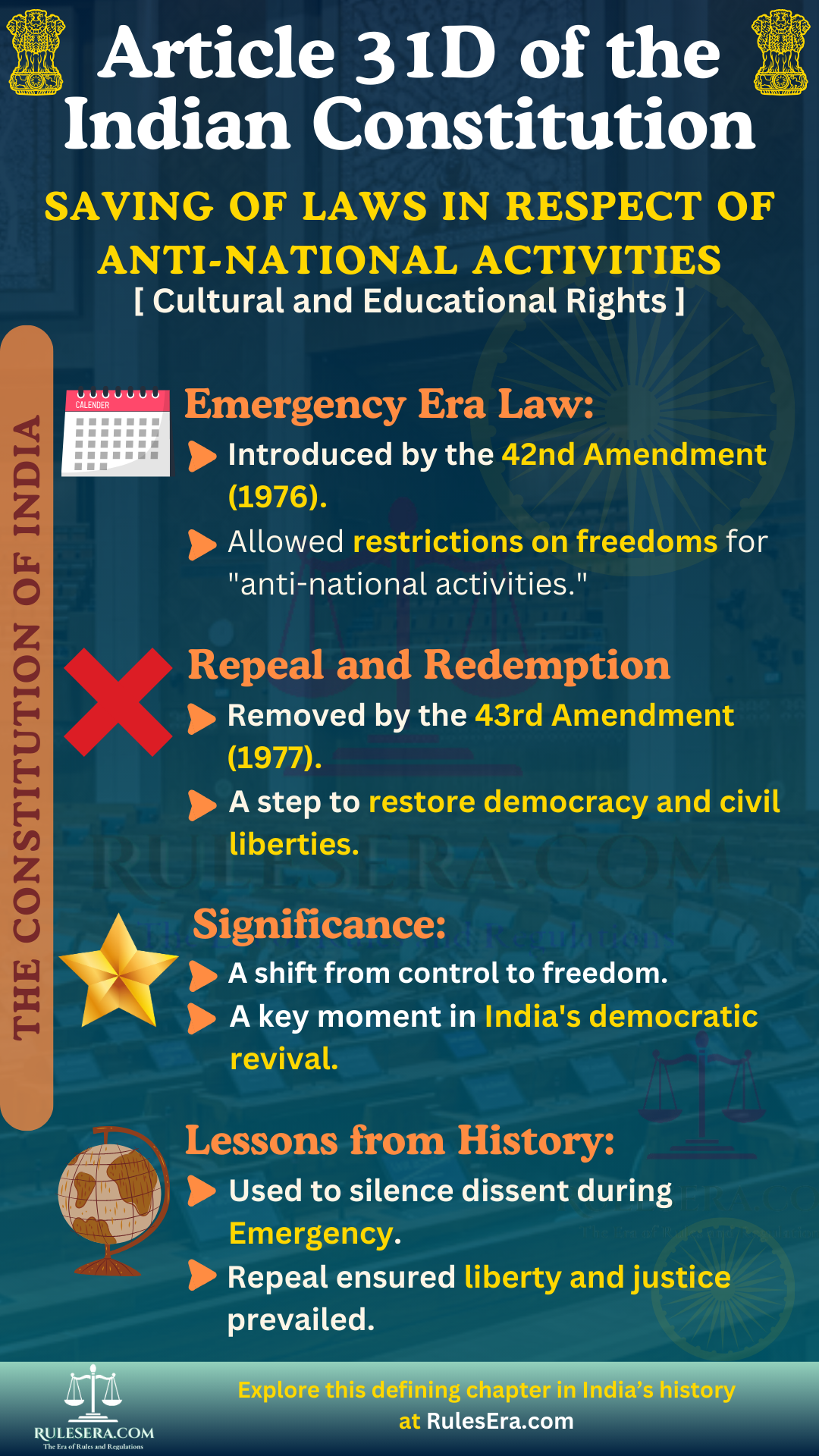Part III: Fundamental Rights
Article 31D: Saving of Laws in Respect of Anti-National Activities:: Cultural and Educational Rights

Article 31D, introduced during the Emergency, allowed laws that restricted fundamental rights to address anti-national activities. Later omitted, this Article represented a balance between national security and civil liberties during a contentious period in Indian history.
Explanation
Originally enacted to empower the state in countering anti-national activities, Article 31D was part of the constitutional changes during the Emergency. It was omitted by the Forty-third Amendment to prevent potential misuse and to reaffirm democratic freedoms.
Key Aspects of Article 31D
- Emergency Context: Introduced during the Emergency to address perceived threats to national integrity, allowing the state to enact restrictive laws.
- Repeal and Restoration of Rights: Omitted by the Forty-third Amendment as part of a larger effort to restore fundamental rights and limit government overreach.
Real-Life Applications
Article 31D facilitated actions during the Emergency, such as the detention of dissenters. Its repeal marked a shift back towards safeguarding democratic rights and ensuring checks on state power.
Frequently Asked Questions (FAQs):
Article 31D was introduced to empower the government to deal with anti-national activities, allowing restrictive laws to protect national security during the Emergency.
The repeal of Article 31D was part of a post-Emergency reform aimed at restoring fundamental rights and limiting the government’s ability to curb civil liberties.